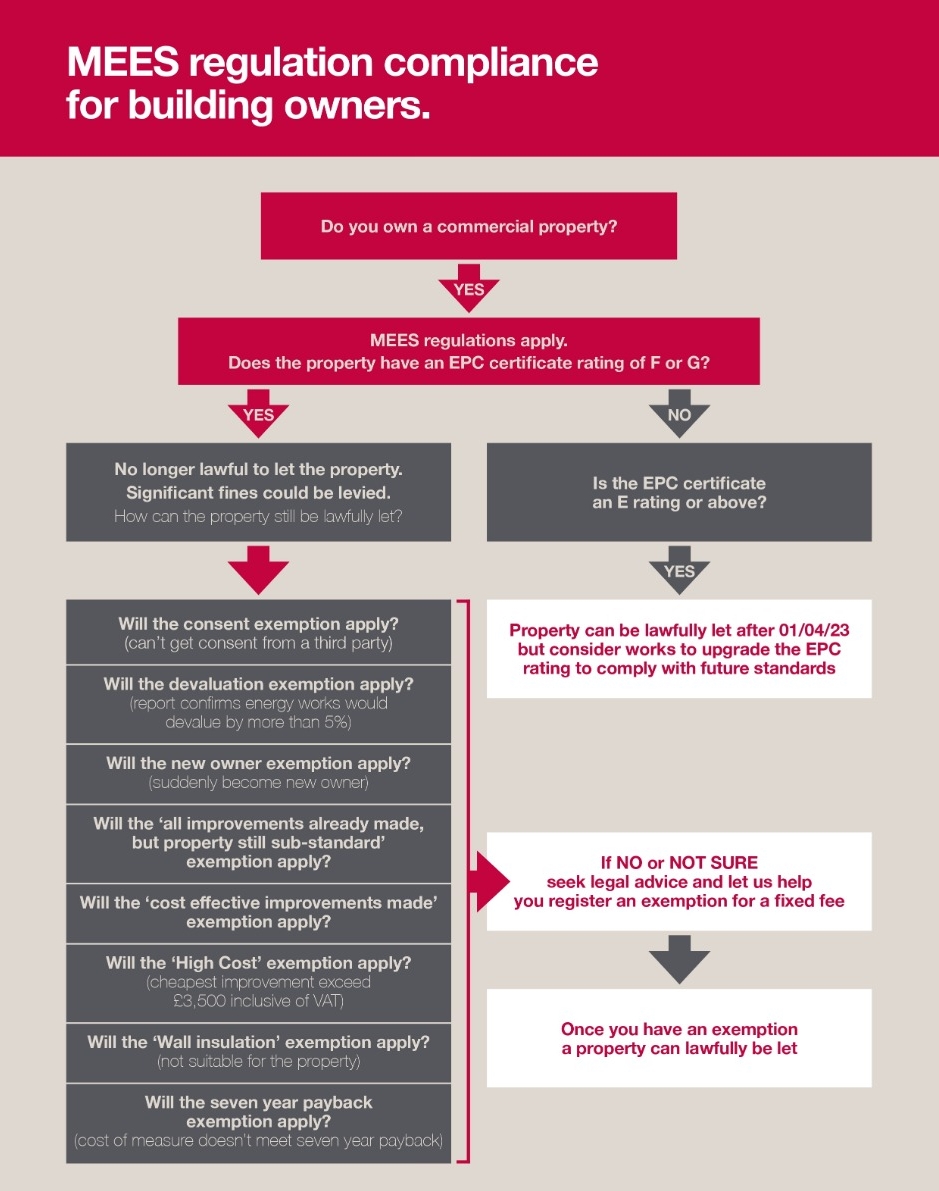The Minimum Energy Efficiency Standards (MEES) have changed as of April 1st, 2023.
The Minimum Energy Efficiency Standards (MEES) regulations were introduced to help landlords improve the energy efficiency of their properties. Landlords need to ensure their rental properties in England and Wales have an Energy Performance Certificate (EPC) rating of at least E.
If you're a commercial landlord and want to ensure you're up to speed with the new MEES regulations, please see our quick guide to registering an exemption below and steps to ensure compliance.

Steps to ensure compliance with the MEES regulations
Listed below are some steps landlords can take to comply with the MEES regulations.
Step 1: Check the EPC rating of your property
The first stage of ensuring you comply with the MEES regulations is to check the current EPC rating of your property. You can do this by visiting the EPC Register website and entering the postcode of your property. If the EPC rating is below E, you must take action to improve the property’s energy efficiency.
Step 2: Identify areas for improvement
The EPC report will help you identify improvement areas for your property. This could be things like improving insulation, installing energy-efficient lighting, upgrading the heating system or adding renewable energy sources, like solar panels.
Step 3: Make necessary improvements
Once you have identified the areas where you need to make improvements, you need to make the necessary changes to improve your property’s energy efficiency. This may often mean hiring a suitable professional to undertake some of the work. However, there are also likely to be things you can do yourself, such as installing low-energy light bulbs and draught-proofing doors and windows.
Step 4: Get a new EPC
When the required improvements have been carried out, you will need a new EPC for your property. This will show your property’s improved energy efficiency rating and ensure compliance with the MEES regulations. You should also ensure that the EPC is always up to date and reflects any ongoing changes and improvements made to the property.
Step 5: Keep records
To demonstrate compliance with the MEES regulations, you must keep records of all the improvements you make to your property. This includes invoices and certificates from contractors, receipts and a copy of the EPC report. Keeping records of ongoing maintenance and repairs is also advisable to ensure your property remains energy efficient.
Step 6: Communicate with tenants
It is important to inform your tenants about the improvements made to the property to comply with the MEES regulations. It is also advisable to speak to tenants to provide information and guidance on using energy-efficient appliances and heating systems and encourage them to promptly report any property maintenance issues, particularly if it affects energy efficiency.
Step 7: Plan for future improvements
The MEES regulations will continue to apply beyond April 2023. Further increases in the minimum energy efficiency ratings are expected, so landlords must keep up to date with the changes and plan for future improvements to ensure continued compliance with the regulations.
At first, it may seem daunting to comply with the MEES regulations, but by following these steps, landlords can ensure their properties are energy efficient and compliant.
This information is for guidance purposes only and does not constitute legal advice. We recommend you seek legal advice before acting on any information given.




